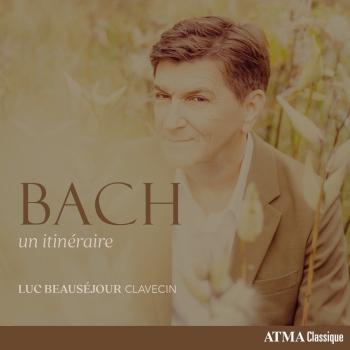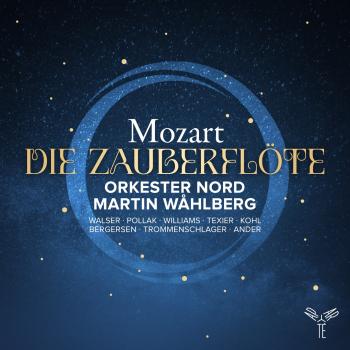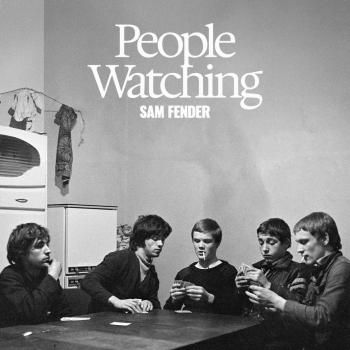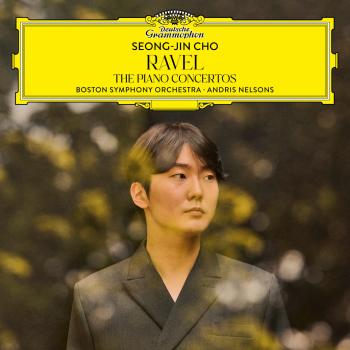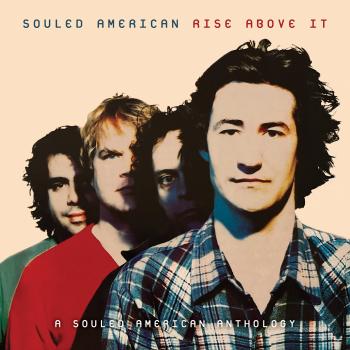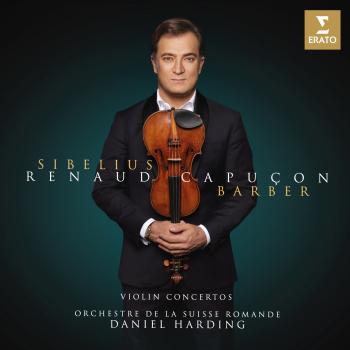
DVORÁK: Symphony No. 9 / TCHAIKOVSKY: Romeo and Juliet Yakov Kreizberg
Album info
Album-Release:
2003
HRA-Release:
29.08.2012
Label: PentaTone
Genre: Classical
Subgenre: Orchestral
Artist: Yakov Kreizberg
Composer: Antonin Dvorak (1841-1904), Pyotr Il'yich Tchaikovsky
Album including Album cover Booklet (PDF)
- 1 I. Adagio - Allegro molto 12:16
- 2 II. Largo 13:53
- 3 III. Scherzo - Molto vivace 08:03
- 4 IV. Allegro con fuoco 11:54
- 5 Romeo and Juliet Fantasy Overture (3rd version, 1880) 21:13
Info for DVORÁK: Symphony No. 9 / TCHAIKOVSKY: Romeo and Juliet
Antonin Dvorák Symphony No. 9
Jeanette Thurber, the wife of a rich grocery wholesaler, was a woman with a mission: the promotion of a national American style of composition.To this end she founded a conservatoire in New York in 1885. However, it appeared that her dream was not to come true, as the school did not manage to attract any talented musicians. But she refused to give up and asked the famous Czech composer Antonín Dvorák if he was interested in becoming the principal of her National Conservatory of Music.The salary she offered him was very generous – no less than 25 times the amount he had earned in Prague.
Dvorák accepted and in September 1892 he crossed the ocean with his wife and two children and arrived in the New World.
The roots of Dvorák’s music lay in the folk music of his native country of Bohemia. But if the Americans wanted to develop their own musical identity, they would have to reach back into their own musical foundation: 'I am at present convinced that the future music of this country will have to be based on the so-called ‘negro songs’.They will have to form the real basis for a serious and authentic school of composition which will have to be developed in the United States.' Although Dvorák was busy at the conservatoire, he still found the time to compose. In May 1893, he completed his first American composition, his Symphony No. 9. Naturally, the folk music of his beloved Bohemia can be heard in the symphony, however, Dvorák also processed some of the music of his host country which had welcomed him with open arms.Through a colleague at the conservatoire, he had come into contact with African-American spirituals and songs which the slaves had sung in the plantations. (One of his black composition students, Harry T. Burleigh, regularly sang spirituals for him.) And he had studied American Indian music in transcription.
Literal quotes from American folk music cannot be found in Dvorák’s Symphony No. 9, which he titled ‘From the New World’. That was never his intention: he had tried to reproduce the spirit of the music in his newest symphony. 'I did not use existing melodies. I just wrote original themes which contain the characteristics of Indian music, and then I elaborated on these themes using all the means of modern rhythm, harmony, counterpoint and orchestral tones.' It became evident later that Dvorák had plumbed the depths of American music when one of his students wrote a text for the melody of the slow movement from the Ninth, and then arranged it for choir. This arrangement of the symphony, Goin’ home, was long believed to be an original spiritual quoted by Dvorák.
Tchaikovsky: Fantasy Overture Romeo and Juliet
Fatal love, doomed to a tragic ending.This subject has often inspired composers to create majestic and compelling works. Tchaikovsky, for example, who was something of a late developer. In fact, he was 28 years old when Mili Balakiref conducted the première of his orchestral piece Fatum. This was his third composition for symphony orchestra and, just as its two predecessors, not a success. However, Balakiref had faith in the composer and took his young colleague under his wing. Fatum lacked structure and direction. He suggested thatTchaikovsky based his next work on Shakespeare’s Romeo and Juliet – Balakiref was probably aware ofTchaikovsky’s unrequited love for the Belgian soprano Désirée Artôt, and believed that the fate of the famous couple would encourageTchaikovsky to compose.
However,Tchaikovsky was not immediately enthusiastic: he did not like symphonic poems. Nevertheless, he started work and took to heart Balakiref’s explicit instructions with regard to the composition: 'Begin with the music which represents Brother Lawrence, then interrupt it with the uproar of the quarrelling families, then give a portrait of the young lovers.' In November 1869,Tchaikovsky completed the first version of his Fantasy Overture Romeo and Juliet.
“Throughout the New World Symphony, Kreizberg makes the most of dynamic contrasts without exaggerating them. He has a wonderful ear for orchestral color and achieves enviable instrumental blend and balances….Romeo and Juliet does not get as overheated as some other versions, but it’s a beautifully paced performance and the return of the Big Tune is really quite stirring,….” (Andrew Quint, Fanfare)
“Yakov Kreizberg conducts really fine performances of these two repertoire favorites…In stereo this live recording sounds gorgeous, but DSD multichannel format offers even more precise instrumental positioning and greater front-to-back depth, all with brilliant highs and a rock-solid bass. But make no mistake, even without the audiophile credentials the quality of the music-making on offer speaks for itself.” (Dave Hurwitz, ClassicsToday.com)
Recording Producer: Job Maarse
Executive Producer: Job Maarse
Balance Engineer: Everett Porter, Erdo Groot
Recording Engineer: Everett Porter, Mario Nozza, Taco van der Werf
Recorded live in Amsterdam's Concertgebouw in January 2003
Yakov Kreizberg (1959 - 2011)
One of the most interesting and exciting conductors of his generation, Yakov Kreizberg conducted most of the major orchestras throughout Europe, North America and Asia. At the time of his death he held the posts of Artistic and Music Director of the Orchestre Philharmonique de Monte-Carlo, and Chief Conductor and Artistic Advisor of the Netherlands Philharmonic and Netherlands Chamber orchestras.
He had previously held the posts of Principal Conductor and Artistic Advisor of the Bournemouth Symphony Orchestra, Principal Guest Conductor of the Wiener Symphoniker and Generalmusikdirektor of the Komische Oper Berlin. In Europe, Yakov Kreizberg worked with the Berliner Philharmoniker, the Münchner Philharmoniker, Royal Concertgebouw Orchestra, Symphonieorchester des Bayerischen Rundfunks, Staatskapelle Dresden, Gewandhausorchester, Orchestre National de France and WDR Sinfonieorchester. In the UK he worked with the London Symphony, BBC Symphony, London Philharmonic and the Philharmonia orchestras. He was a frequent guest at London's BBC Proms and last appeared there in 2008 with the Netherlands Philharmonic Orchestra.
In North America Yakov Kreizberg conducted, amongst others, the Philadelphia, Boston Symphony, Chicago Symphony and Minnesota orchestras, as well as the Los Angeles and New York Philharmonics. In Asia he worked with orchestras such as the NHK and Yomiuri Nippon Symphony. Equally at home in the opera house he conducted productions at the Chicago Lyric Opera, Canadian Opera, English National Opera, Bregenz Festival, Glyndebourne Festival Opera, De Nederlandse Opera and the Royal Opera House.
Yakov Kreizberg encouraged and dedicated time to inspiring youth in music and for a number of years he was Music Director of the Jeunesses Musicales World Orchestra. In October 2007 he was bestowed the ‘Ehrenkreuz’ by the Austrian President in recognition of his achievement in the Arts. A prolific recording artist, he leaves behind an extensive and award-winning discography. His most recent recordings were recorded for the Orchestre Philharmonique de Monte-Carlo’s new label – OPMC Classics – launched in autumn 2010 with a triple CD of Stravinsky’s major ballets. This was followed by a Ravel and Debussy compilation in 2011. His many and much admired recordings for PentaTone included symphonies by Shostakovich (Nos. 5 and 9), Dvořák (Nos. 5 - 9), Schmidt (No. 4 – a piece with which he was closely associated) and a number of discs in collaboration Julia Fischer. He also recorded for Decca, Orfeo and Oehms Classics.
Born in St Petersburg, Yakov Kreizberg studied conducting privately with the legendary Ilya A. Musin, before emigrating to the United States in 1976. There he was awarded conducting fellowships at Tanglewood with Bernstein, Ozawa and Leinsdorf, and at the Los Angeles Philharmonic Institute with Michael Tilson Thomas. In 1986 he won first prize in the Leopold Stokowski Conducting Competition in New York.
The Russian National Orchestra
was founded by the conductor and pianist Mikhail Pletnev in 1990, following sweeping changes in the former USSR. Under his artistic leadership, the orchestra soon achieved international renown and established its hallmarks of innovation and excellence. In 2008, a panel of international critics named the Russian National Orchestra as one of the world’s top orchestras. In recognition of both its artistic quality and its pioneering structure, the Russian Federation recently awarded the Russian National Orchestra the first-ever grant to a nongovernmental orchestra.
The orchestra is a frequent guest in the music capitals of Europe, Asia, and the Americas. After the Russian National Orchestra’s 1996 début at the BBC Proms in London, the Evening Standard wrote, “They played with such captivating beauty that the audience gave an involuntary sigh of pleasure.” They have been described as “a living symbol of the best in Russian art” (Miami Herald) and “as close to perfect as one could hope for” (ClassicsToday). Recently the RNO was called “the most important cultural story of our time” (International Piano). A regular visitor to the Schleswig-Holstein, Gstaad, and Rheingau Festivals, the Russian National Orchestra is also the founding orchestra of the Napa Valley Festival del Sole, the Festival of the Arts BOCA in Florida, and the Singapore Sun Festival. In 2009, the orchestra launched its own annual festival in Moscow.
Booklet for DVORÁK: Symphony No. 9 / TCHAIKOVSKY: Romeo and Juliet

